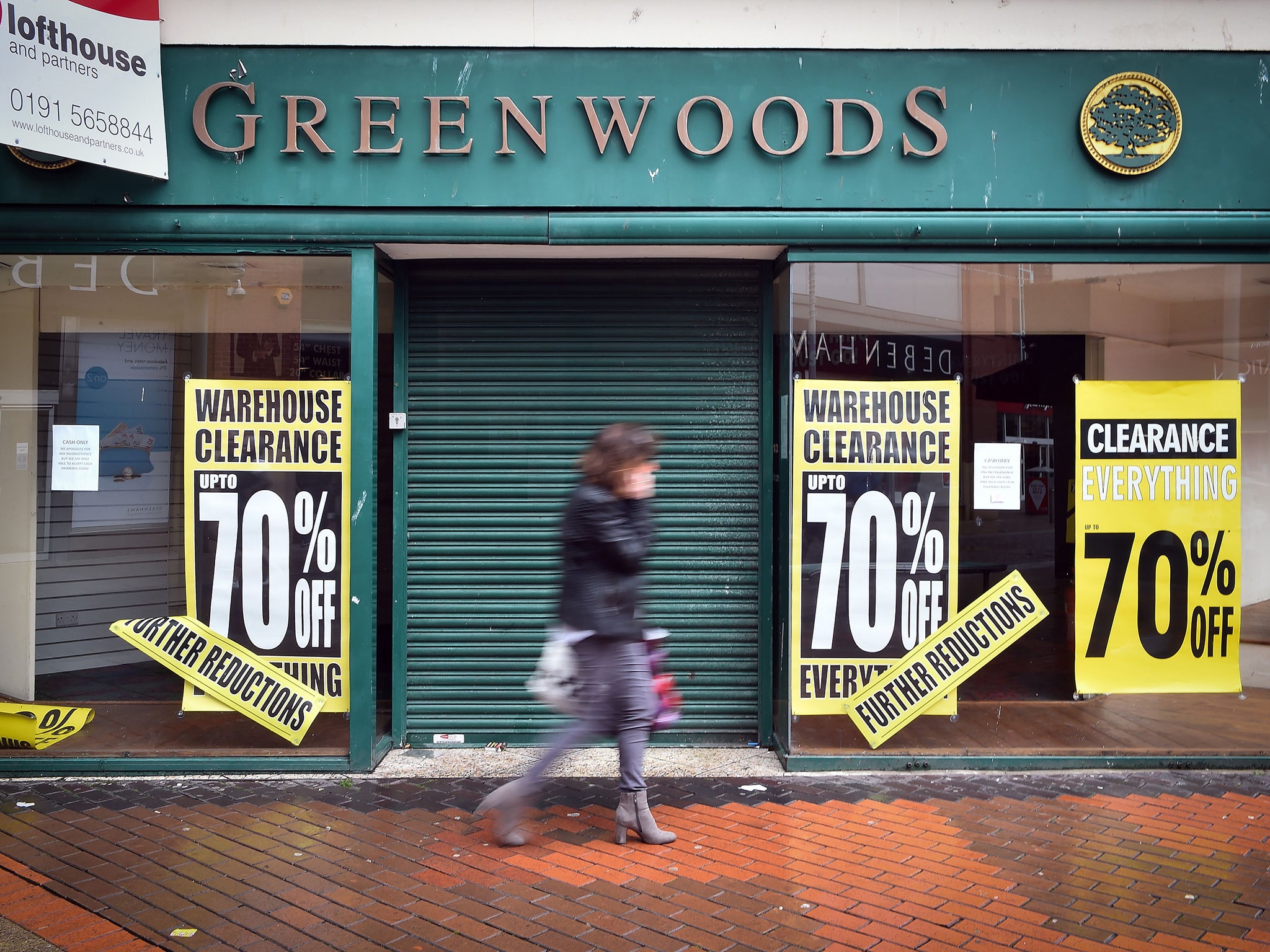We know the high street is doomed so what are MPs waiting for?
Yes, the system is broken. But there’s still time to fix it, writes Chris Blackhurst, if only the government can rise above its own bureaucracy


Part of the frustration in the newspaper industry surrounding the Leveson Inquiry report was that the good judge did not come up with a solution as to how the press should be regulated.
After all those months of expensive, in terms of time and cost, hearings and arguments, Leveson sat on his hands. Effectively, he said it was up to those he’d been scrutinising, and criticising for their bad behaviour, and the government to find an effective, improved system.
Cue much arguing and anger among politicians and editors as they tried to reach an accord.
To my mind, it brought into sharp relief what the purpose of the review was actually for. Listening to witness after witness go through similar circumstances and attempted justifications was, quite frankly, repetitive and tedious. We realised there was a major problem, we knew phones had been hacked and private lives invaded. It was obvious the existing disciplinary framework had failed. What was required was action, a new formula to ensure it could never be repeated.
I was reminded of Leveson, and numerous other inquiries for that matter (Leveson’s happened to be a study I was especially close to, as an editor at the time, and afterwards was left wondering where 18 months of my life had gone) when reading the Treasury Committee report into business rates.
What’s the MPs’ conclusion? That the government needs to replace a “broken” charge that deters investment in the deeply troubled British high street.
It’s a tax that raised £31bn last year. The MPs said it levied “a greater cost on high street shops and sectors like manufacturing than online businesses”. In social media parlance, I want to reply, sarcastically, OMG.
I don’t want to be too critical of the MPs for their finding. But, as with Leveson, I’m not sure why we needed to take many valuable hours reaching a verdict that has been made dramatically clear these past few years.
Online players, who sell exactly the same goods to the same purchasers, are not subject to the same levy. As they’ve risen, and their delivery and supply lines have become ever more slick, so have the old bricks and mortar operators struggled. And that’s before we get into rental reviews, lack of access to town centres, and parking charges.
The MPs could have walked down any high street in the land, seen the boarded-up premises, spoken to any shopkeeper, and within minutes they would have identified a key factor as being the anachronistic and convoluted business rates tax.
They asked how it was that the amount raised from business rates had outstripped inflation and has consistently increased in relation to the rest of the taxes bill paid by a business. The MPs further noted that the UK has one of the highest property-based taxes in the OECD as a proportion of GDP, which has had an impact on the attractiveness of the country as a destination for investment. Meanwhile, the online rivals sail on regardless, making an exchequer contribution of next to nothing.
“It’s abundantly clear that the current business rates system is broken,” declares Alison McGovern, the Treasury Committee’s lead member. “The tax represents an increasing burden on businesses, particularly those with a physical high street presence struggling to remain competitive.”
She says the government must ensure that business rates align with its aim to boost productivity and “not disincentivise growth”, adding that it was unfair on the manufacturing sector that rates were also included on essential operating equipment.
Yes, yes, it’s wrong, unfair, broken, whatever. We know that, so what is the answer? Only that more work is required to model different proposals so the government can prepare a consultation next year. Alternatives to business rates presented to the committee included land value tax, online sales levy and a profits tax. But they did not say which of these they preferred.
So, let’s get this right. You hold a study lasting months and highlight something you could have discovered by a stroll around some shops and a spot of rudimentary research on Google. Then, you leave it to others to solve the problem. You don’t even, in fact, recommend a replacement.
Brilliant. So now we have a government-led consultation that may suggest an alternative. Then, ministers need to agree to adopt it, the chancellor has to present it to the Commons, a bill has to be laid before the House, and so on. And while that process is taking place, yet more shops and businesses have gone to the wall.
Not surprisingly, Jerry Schurder, head of business rates at property consultancy Gerald Eve, says that the Treasury Committee’s report falls short of recommending the “radical reforms that are essential if the rating system is to be made fit for purpose for a modern economy”.
He said, “it is only reductions in business rates bills that will help struggling firms, and bring the UK into line with other developed nations”.
There we have it. A disaster is unfolding before our very eyes, an inquiry is held, and it comes up with nothing of any value. Brilliant, and as we’ve witnessed on many occasions before, oh so typical.
Join our commenting forum
Join thought-provoking conversations, follow other Independent readers and see their replies
Comments